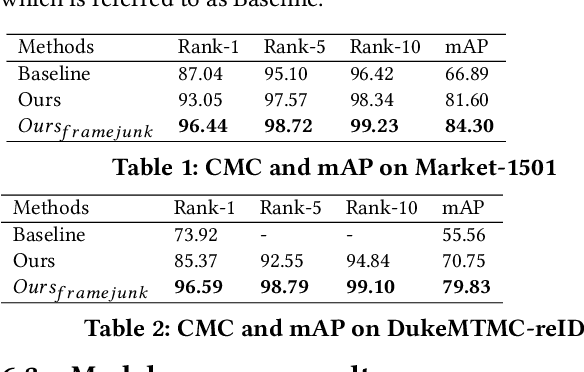Identity-Aware Attribute Recognition via Real-Time Distributed Inference in Mobile Edge Clouds
Paper and Code
Aug 12, 2020



With the development of deep learning technologies, attribute recognition and person re-identification (re-ID) have attracted extensive attention and achieved continuous improvement via executing computing-intensive deep neural networks in cloud datacenters. However, the datacenter deployment cannot meet the real-time requirement of attribute recognition and person re-ID, due to the prohibitive delay of backhaul networks and large data transmissions from cameras to datacenters. A feasible solution thus is to employ mobile edge clouds (MEC) within the proximity of cameras and enable distributed inference. In this paper, we design novel models for pedestrian attribute recognition with re-ID in an MEC-enabled camera monitoring system. We also investigate the problem of distributed inference in the MEC-enabled camera network. To this end, we first propose a novel inference framework with a set of distributed modules, by jointly considering the attribute recognition and person re-ID. We then devise a learning-based algorithm for the distributions of the modules of the proposed distributed inference framework, considering the dynamic MEC-enabled camera network with uncertainties. We finally evaluate the performance of the proposed algorithm by both simulations with real datasets and system implementation in a real testbed. Evaluation results show that the performance of the proposed algorithm with distributed inference framework is promising, by reaching the accuracies of attribute recognition and person identification up to 92.9% and 96.6% respectively, and significantly reducing the inference delay by at least 40.6% compared with existing methods.
 Add to Chrome
Add to Chrome Add to Firefox
Add to Firefox Add to Edge
Add to Edge